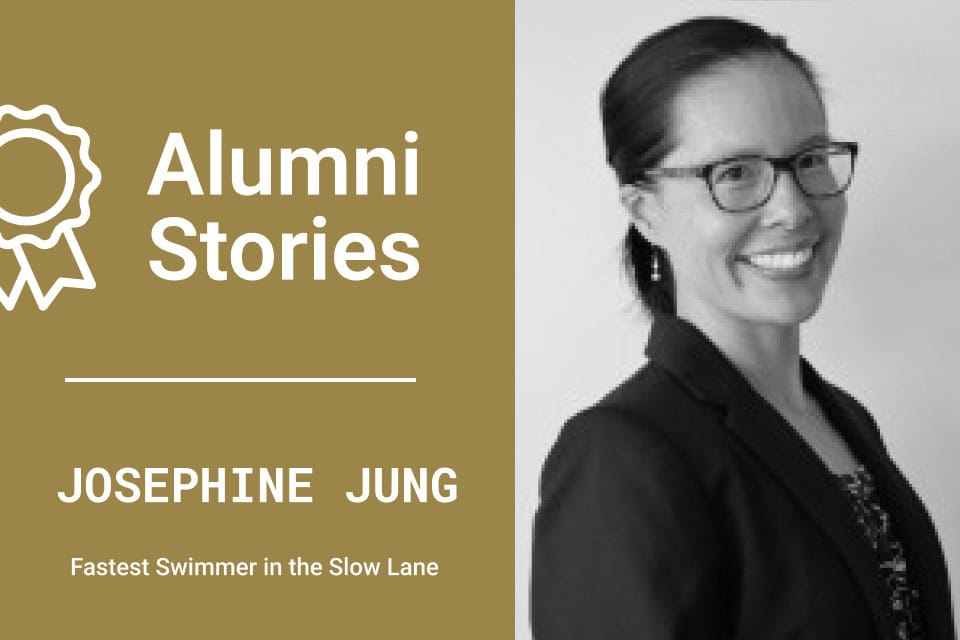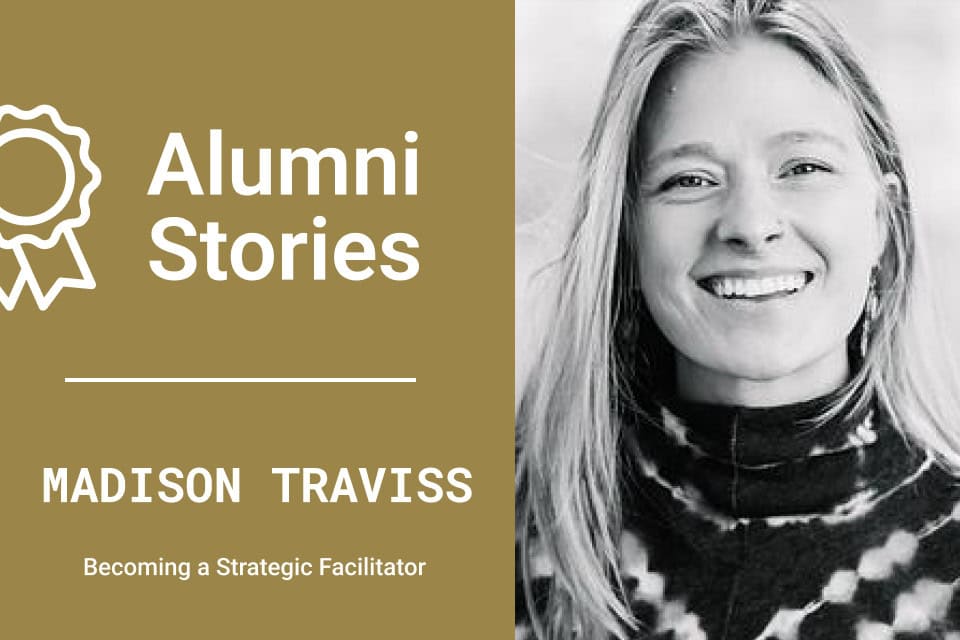How exploring facilitation transformed my leadership and collaborative skills
I’ve always been in environments where continuous learning was encouraged, especially working in the tech industry. My company constantly emphasized having a growth mindset, so I attended a lot of mandatory trainings over the years. Initially, I saw these sessions as just another part of professional development. The instructors were always knowledgeable, but something began to stand out to me over time—there was an art to the way some people led these sessions. I started noticing that some were better than others at pulling us into discussions, making the material more engaging, and setting the tone for collaboration.
The moment I really started to understand this “art” was during a project management training session about a decade ago. It was summer, and we were working on improving end-to-end processes for operations using PM methodology. The facilitator introduced gamification into the session, which was unlike anything I’d experienced before. Prior to that, everything had been straightforward—objectives, timelines, tasks—nothing that really sparked deep engagement. But this facilitator was different. She knew how to pull even the most introverted people out of their shell, and she did it playfully, creating a warm, open environment.
One of the things that really struck me was how she started the session with icebreakers. Instead of diving straight into the material, she got us to know each other by doing fun activities like “Three Truths and a Lie.” It broke down barriers between participants, some of whom had never met before. That exercise set the stage for deeper collaboration when we moved into problem-solving activities. By the time we got into the meat of the course, the group felt more like a team, and people were more willing to share ideas, even the quieter members.

This experience made me realize that leading a group isn’t just about managing time and content. It’s about how you guide interactions, how you connect people to one another, and how you create a space where everyone feels they can contribute. I didn’t have the language for it at the time, but I started seeing facilitation as an essential skill—something that could make or break a team’s success. That moment planted a seed, and it eventually led me to explore how I could develop those skills further.
Getting Curious About Facilitation
As the years went on, I found myself becoming more aware of the importance of facilitation in my work. I’d attended more trainings and workshops, but now I started noticing patterns. Some facilitators made a real impact, while others fell flat. It became clear to me that facilitation wasn’t just about delivering information—it was about how you engage people, help them solve problems collaboratively, and create an atmosphere where ideas could flow freely.
Around this time, I started having more conversations with my mentor, who had been guiding me in my career for several years. We discussed my interest in leadership and how I could become more effective in leading teams through complex projects. My mentor encouraged me to explore facilitation more deeply and even suggested I look into certification programs. The idea of formally developing these skills intrigued me. I knew I wanted to get better at guiding teams through problem-solving and decision-making, but I wasn’t sure where to start.
I began researching different facilitation certifications, and it quickly became clear that this wasn’t just about learning a few new techniques—it was an entire field of study. I learned that facilitation could be applied in so many ways, from workshops to strategic planning, to everyday team meetings. I realized that if I could master these skills, I could help my teams collaborate more effectively, find creative solutions to challenges, and ultimately, drive better results for the company. This discovery was both exciting and a little overwhelming because I saw how much potential there was to grow in this space.
The more I looked into it, the more I wanted to learn. I was particularly drawn to the idea of facilitation as not just a technical skill, but as an art form that could influence team dynamics, culture, and even the success of entire projects. I knew that finding the right certification program would be the next step in deepening my understanding and becoming a more effective leader.
Choosing Voltage Control
After speaking with my mentor and diving into my research, I knew I was ready to take the next step. I explored several certification programs, but nothing really clicked until I came across Voltage Control. The moment I found them, something stood out. Not only was Voltage Control based locally in Austin, which gave me a sense of community, but they also offered exactly what I was looking for—a hands-on, intimate learning experience that went beyond just coursework.
I wanted a program that would provide practical, real-world applications and allow me to interact with others who shared my passion for facilitation. Voltage Control emphasized building a community of facilitators who could support each other even after the certification was completed, which felt like a perfect fit for me. The idea of continuing to grow, learn, and practice facilitation in a network of like-minded professionals was exactly what I needed.
While other programs may have offered similar content, Voltage Control’s focus on fostering relationships and creating a supportive, collaborative environment made the decision clear. I knew this was the place where I could really hone my skills and become the facilitator I aspired to be.
A Journey of Growth and Connection
Going into the certification with Voltage Control, I had high expectations—and they were definitely met. Even though the cohort I joined was one of the largest Voltage Control had ever hosted, it still felt intimate. The way the program was structured, with breakout sessions, peer-to-peer interactions, and “buddy” systems, made it easy to connect deeply with the other participants. From day one, I felt supported, both by the instructors and my peers. There was a sense that we were all in this together, learning, growing, and challenging each other.
One of the biggest highlights for me was the hands-on nature of the program. We didn’t just sit through lectures; we were constantly practicing what we learned. Whether it was through facilitating in smaller breakout groups or working on projects together, the experience felt immersive. Every session pushed me to think differently, not just about facilitation, but about how I lead and collaborate. I appreciated how the course wasn’t just theoretical—it gave us real tools to use in our day-to-day roles.
The final capstone project was another significant moment for me. Putting together my portfolio was a challenging, but deeply rewarding process. It forced me to dig deep into everything I had learned and apply it in a structured way. When I presented my work to the group, I felt a sense of accomplishment that I hadn’t anticipated. Not only did my mentor express how impressed he was with the outcome, but I also realized how much I had grown over the course of the certification. I walked away from that presentation with a newfound confidence in my abilities.

Looking back, the program wasn’t just about gaining new knowledge—it was about transformation. I left Voltage Control feeling more equipped, more self-assured, and more connected to a community of facilitators who would continue to support me as I applied these skills in the real world.
Applying Facilitation in My Work
After completing the Voltage Control certification, I began noticing significant changes in how I approached my work. Facilitation became an integral part of how I led meetings and guided discussions. One of the biggest shifts for me was how I started incorporating elements like icebreakers and gamification to make meetings more engaging. I realized that starting with activities to warm people up helped create a space where participants felt more comfortable sharing their ideas. This small change had a huge impact on the outcomes of my meetings.
Beyond just meetings, I also started paying more attention to how I could guide teams through problem-solving in a more structured and collaborative way. I applied the tools and frameworks I learned during the certification to help my teams break down complex challenges and come up with creative solutions. The techniques I picked up, like how to manage group dynamics and create inclusive environments, were especially helpful when dealing with difficult or high-stakes situations. It’s one thing to know how to run a meeting—it’s another to help people work through disagreements or conflicting opinions to reach a consensus.
I’ve also become more intentional about how I facilitate feedback and group discussions. Now, when I lead a session, I’m focused on ensuring that everyone has a voice, whether they’re an extrovert who’s quick to contribute or an introvert who needs a little more space to process before speaking up. The Voltage Control program gave me the confidence and tools to step into this role fully, and it has transformed how I show up as a leader in my organization.
Continuing the Journey of Growth
As I look to the future, I see facilitation as an ongoing part of my career and personal development. I’ve realized that facilitation isn’t just a skill—it’s a mindset, one that I want to continue honing as I grow in my leadership role. I’m exploring additional certifications, particularly in executive coaching, because I believe facilitation and coaching go hand in hand. There’s something powerful about helping people not only work through challenges but also develop the self-awareness and skills they need to lead effectively.
I’m also interested in integrating facilitation into holistic and wellness approaches. There’s a strong connection between how we facilitate conversations and how we create environments where people feel safe, seen, and empowered. I want to dive deeper into that intersection, learning more about neuroscience and psychology to understand how I can bring more empathy and inclusivity into my work. Ultimately, I see myself using these skills to not only improve my own leadership but to help others grow as well, whether that’s within my company or through community initiatives.
Facilitation has opened up so many doors for me, and I’m excited to see where this journey will take me next. I know that continuing to push myself, challenge my assumptions, and stay connected to the Voltage Control community will help me keep evolving as both a leader and a facilitator.
If you’re considering certification with Voltage Control, I can’t recommend it enough. The program offers more than just tools and techniques—it provides a community, a support system, and a space for continuous learning and growth. Whether you’re looking to enhance your facilitation skills or explore a new career path, this certification will give you the confidence and capabilities to make a lasting impact. Don’t hesitate—this could be the next big step in your journey, just like it was for me.


